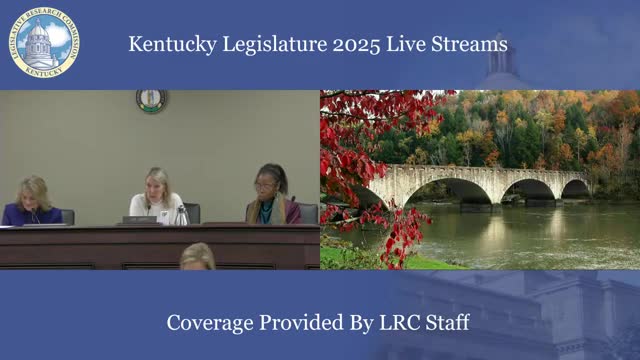Committee backs SB 100 to require tobacco, nicotine and vapor retail licensure, compliance checks and penalties
Get AI-powered insights, summaries, and transcripts
Subscribe
Summary
Senate Bill 100, which would establish statewide tobacco, nicotine and vapor product retail licensure and enforcement, advanced from the Senate Standing Committee on Licensing and Occupations on Feb. 18.
Senate Bill 100, which would establish statewide tobacco, nicotine and vapor product retail licensure and enforcement, advanced from the Senate Standing Committee on Licensing and Occupations on Feb. 18 after proponent testimony and committee discussion.
Sponsor Sen. Jimmy Higdon, R‑14, described the measure as a supply‑side response to youth nicotine use and said it would establish a Division of Tobacco, Nicotine and Vapor Products within the Department of Alcoholic Beverage Control (ABC). “This bill has teeth,” Higdon told the committee, outlining a $250 annual license fee, a $50 application fee, criminal penalties for operating without a license and escalating fines and license sanctions for retailers that sell to underage purchasers.
Delaney Crump, a high‑school freshman and member of the University of Kentucky’s I Can End the Trend youth advisory board, urged the committee to act to curb youth vaping and nicotine dependence. “They don’t realize that 1 pod contained as much nicotine as 20 cigarettes,” Delaney said, describing flavors and marketing that she said target young people.
Tony Flores, a vapor retailer and member of the Kentucky Smoke Free Association, testified in support of licensing for accountability but urged the committee to tighten definitions so the law does not unintentionally sweep hemp‑derived or medical products into the prohibited category. He also noted pending litigation at the U.S. Supreme Court related to FDA premarket review (PMTA) and recommended postponing the bill’s effective date to allow the state to adjust to any national legal changes.
Higdon described enforcement specifics: investigators would have inspection authority similar to ABC’s existing alcohol regulators; first‑offense sales to underage buyers would carry a $100 fine for the clerk and a written warning for the owner; later violations would impose larger fines and license suspension or denial of renewal, with the fourth violation leading to license revocation and a two‑year bar on reapplying. He said wholesalers selling unauthorized products could face civil penalties (first citation $5,000; subsequent $15,000). The bill would dedicate 50% of collected fines to enforcement and 50% to youth education programs and require at least one random annual compliance check for each licensed retailer.
Committee members, including Sen. Mace Bledsoe and Sen. Chambers Armstrong, praised youth testimony and described the measure as a necessary step to reduce youth access. The committee adopted a substitute and voted to advance SB 100 with a favorable expression.
The bill now proceeds toward further consideration in the Senate; sponsors and stakeholders signaled continued conversations on definitions, effective date and rulemaking.
